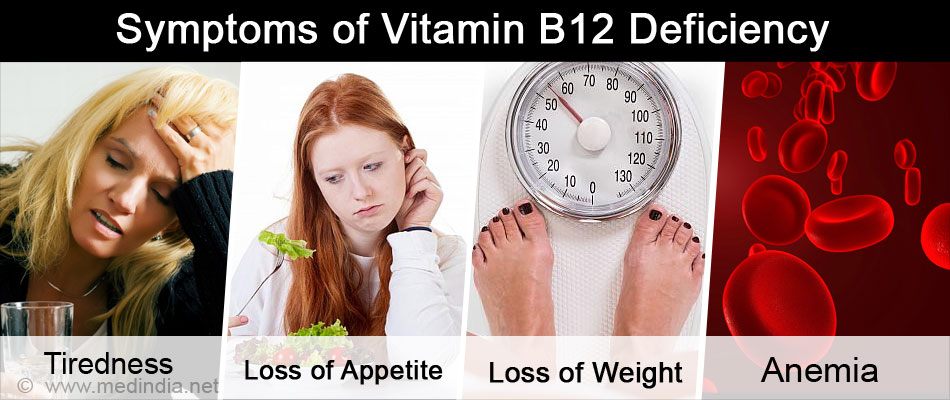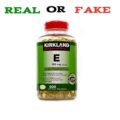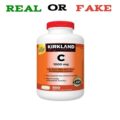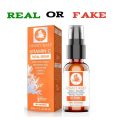Vitamin B12, also known as cobalamin, is an important water-soluble vitamin. It is needed for nerve tissue health, brain function, and the production of red blood cells. Cobalamin is another name for vitamin B-12. Deficiency can result when levels of vitamin B-12 are too low. This can lead to irreversible neurological symptoms. In the United States (U.S.), between 1.5 and 15 percent of the population are currently diagnosed with vitamin B-12 deficiency.
The human body needs vitamin B12 to make red blood cells, nerves, DNA, and carry out other functions. The average adult should get 2.4 micrograms a day. Like most vitamins, B12 can’t be made by the body. Instead, it must be gotten from food or supplements.
However, some people don’t consume enough vitamin B12 to meet their needs, while others can’t absorb enough, no matter how much they take in. As a result, vitamin B12 deficiency is relatively common, especially among older people.
How Much to Get?
The answer depends on things including your age, your eating habits and medical conditions, and what medications you take.
The average recommended amounts, measured in micrograms (mcg), vary by age:
- Infants up to age 6 months: 0.4 mcg
- Babies age 7-12 months: 0.5 mcg
- Children age 1-3 years: 0.9 mcg
- Kids age 4-8 years: 1.2 mcg
- Children age 9-13 years: 1.8 mcg
- Teens age 14-18: 2.4 mcg (2.6 mcg per day if pregnant and 2.8 mcg per day if breastfeeding)
- Adults: 2.4 mcg (2.6 mcg per day if pregnant and 2.8 mcg per day if breastfeeding)
Food Sources of Vitamin B12
You can get vitamin B12 in animal foods, which have it naturally, or from items that have been fortified with it. Animal sources include dairy products, eggs, fish, meat, and poultry. If you’re looking for a food fortified with B12, check the product’s Nutrition Facts label.
Most people in the U.S. get enough of this nutrient. If you’re not sure, you can ask your doctor if you should get a blood test to check your vitamin B12 level.
With age, it can become harder to absorb this vitamin. It can also happen if you have had weight loss surgery or another operation that removed part of your stomach, or if you drink heavily.
You may also be more likely to develop vitamin B12 deficiency if you have:
- Atrophic gastritis, in which your stomach lining has thinned
- Pernicious anemia, which makes it hard for your body to absorb vitamin B12
- Conditions that affect your small intestine, such as Crohn’s disease, celiac disease, bacterial growth, or a parasite
- Alcohol misuse or heavy drinking can make it harder for your body to absorb nutrients or prevent you from eating enough calories. One sign that you lack enough B12 may be glossitis, or a swollen, inflamed tongue.
- Immune system disorders, such as Graves’ disease or lupus
- Been taking certain medications that interfere with the absorption of B12. This includes some heartburn medicines including proton pump inhibitors (PPIs) such as esomeprazole (Nexium), lansoprazole (Prevacid), omeprazole (Prilosec OTC), pantoprazole (Protonix), and rabeprazole (Aciphex), H2 Blockers such as cimetidine (Tagamet) and famotidine (Pepcid AC); and certain diabetes medicines such as metformin (Glucophage).
You can also get vitamin B12 deficiency if you follow a vegan diet (meaning you don’t eat any animal products, including meat, milk, cheese, and eggs) or you are a vegetarian who doesn’t eat enough eggs or dairy products to meet your vitamin B12 needs. In both of those cases, you can add fortified foods to your diet or take supplements to meet this need
How is B12 deficiency treated?
Some people have difficulties absorbing vitamin B-12 from food sources and may need to take supplements. This includes older adults, patients with pernicious anemia, and those with achlorhydria or intestinal disorders may have problems absorbing vitamin B-12 from food. Supplements can be taken orally or in a nasal spray. However, oral supplements do not help in many cases of deficiency. In these circumstances, vitamin B-12 like Tribedoce may be injected.
Vegans can take supplements to avoid deficiency, as the vegan diet remove the meat products that provide B-12 naturally. This is particularly important during pregnancy and while breastfeeding. Various B-12 supplements are available to purchase in health food stores and online.
B12 deficiency: how long does it take to feel better?
Vitamin B12 comes as a solution (liquid) to be injected into a muscle or just under the skin. It is usually injected by a healthcare provider in an office or clinic. You will probably receive Vitamin B12 injection once a day for the first 6-7 days of your treatment. As your red blood cells return to normal, you will probably receive the medication every other day for 2 weeks, and then every 3-4 days for 2-3 weeks. After your anemia has been treated, you will probably receive the medication once a month to prevent your symptoms from coming back.
Vitamin B12 injection will supply you with enough vitamin B12 only as long as you receive injections regularly. You may receive Vitamin B12 injections every month for the rest of your life. Keep all appointments to receive Vitamin B12 injections even if you feel well. If you stop receiving Vitamin B12 injections, your anemia may return and your nerves may be damaged.
How Quickly Does Vitamin B12 Shot Work?
Several factors determine how fast Vitamin B12 shot will work, as a result, there’s no one size fits all when it comes to B12 shots. Even among individuals with deficiencies, there are too many variables to give a simple time frame. Patients with more severe deficiencies will require more sessions than patients with less serious deficiencies. Generally, you should see improvements within 24 to 72 hours after taking the Vitamin B12 shot. However, it can take up to six to 12 months before you fully recover from vitamin B12 deficiency. It is also common to not experience any improvement during the first few months of vitamin B12 treatment.







